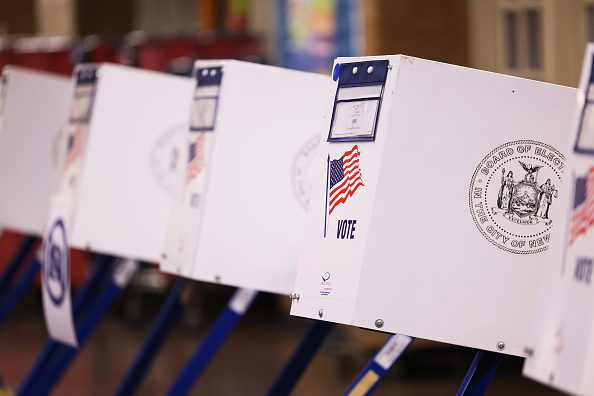When voters go to the polls in November, they’ll face dozens of new restrictions on the ease with which they can vote that weren’t there in 2020. Fueled in part by the Big Lie, states have put in place 33 new restrictive voting laws in 20 states since January 1, 2021, according to a new report by the Brennan Center for Justice released on Thursday morning.
“Whether it’s access to mail voting or new voter registration requirements, voters in some states are facing a significant number of new barriers this year,” Jasleen Singh, counsel in the Democracy Program at the Brennan Center for Justice, told TPM. “These laws derive from conspiracy theories about the 2020 election being stolen and false claims of widespread voter fraud.”
The majority of the new laws that will be in place for 2022’s midterms were passed in the months after the 2020 election and former President Trump’s bogus allegations of mass voter fraud and GOP fearmongering about pandemic voting measures. “This backlash against mail voting followed the 2020 elections, when a much larger proportion of the electorate relied on mail voting than in the past due to the Covid-19 pandemic,” the report says.
But 2022 has been busy too. During this year’s legislative session, lawmakers in 39 states proposed at least 405 restrictive bills, the Brennan Center report found.
This mad dash to pass new voting restrictions is due to partisans’ attempts to gain more control over both the election process before the midterms in November. “The midterms are a major stage for the impact of these new laws to play out and show how they’ll affect our voting rights and our elections,” Singh said.
Between January and September, 2022, at least seven states passed 10 restrictive new laws. Half of them created new barriers to voting by mail.
Conspiracy theories alleging mail-in ballot fraud and other forms of mass voter fraud have been widely debunked, but they’re still having an effect on what election rules are being passed. According to the report, many of the new laws add voter ID requirements, ban drop boxes, and limit absentee voting, as did restrictions passed last year.
This year’s new legislation also targets election administrators: At least six laws in five states add criminal charges for election officials, including an Arizona law that requires poll workers to verify that voters are citizens.
“These laws serve to intimidate election officials, election workers, and voters themselves,” the report says. “They contribute to an atmosphere of fear surrounding elections and create a risk that the people who run elections may be more concerned with avoiding criminal liability than protecting voters.”
There’s a flip side to the push to pass restrictive voting laws, too: At least 12 states have enacted 19 laws that expand the access to vote between January 1, and 18 of them will be in effect for the general election in November.
Nine of the laws were designed to make mail-in voting easier, while eight of them expand accessibility for voters with disabilities, six laws expanded voter registration, and three laws either create or expand early in-person voting.



